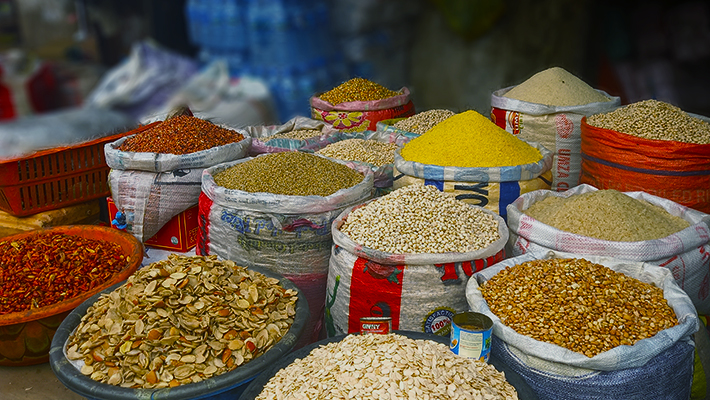To handle the ongoing rise in prices, the federal government is thinking about stopping tariffs, duties, and taxes on bringing in maize, husked brown rice, wheat, and cowpeas through land and sea borders.

This plan is part of the Presidential Accelerated and Stabilisation Advancement Plan, which aims to keep food prices steady and make sure there’s enough food across the country. Additionally, the government is planning to bring in 250,000 metric tons of wheat and another 250,000 metric tons of cowpeas to help small-scale food processors and millers all over the country.
According to sources, the government also plans to increase food production for the 2024/2025 farming season. They will continue to support small farmers during the current wet season with existing government programs and will boost dry season farming nationwide.
Thepaan News learned that a new committee called the Renewed Hope National Livestock Transformation Implementation Committee will soon start working. This committee will create and implement policies focused on livestock development and aligning them with the National Livestock Transformation Plan.
Strict safety standards will be maintained to protect the quality and genetic makeup of the imported food items. The plan also involves setting Recommended Retail Prices (RRP) for these food items and working with stakeholders to establish a Guaranteed Minimum Price (GMP). Other measures include increasing agricultural production for upcoming farming seasons, supporting small farmers during the wet season, and enhancing productivity through modern farming techniques and irrigation.
Moreover, the government plans to use greenhouse cultivation for growing horticultural crops and work with security agencies to farm arable lands, highlighting their commitment to improving food security and stabilizing prices.
This comprehensive strategy aims to tackle the problems of food inflation and strengthen Nigeria’s agricultural resilience amid economic challenges. The National President of the Nigerian Association of Chambers of Commerce, Industry, Mines, and Agriculture (NACCIMA), Dele Oye, praised the government’s decision to pause duties, tariffs, and taxes on the importation of key food commodities.
In a statement, Oye said this decision is a major step toward reducing the severe food inflation affecting Nigerian households. Oye also appreciated the 150-day duty-free import period for essential items like maize, husked brown rice, wheat, and cowpeas, calling it a commendable move that will help stabilize food prices and provide much-needed relief to millions of Nigerians.
He said: “On behalf of the Nigerian Association of Chambers of Commerce, Industry, Mines, and Agriculture (NACCIMA), we commend the federal government’s decisive action to suspend duties, tariffs, and taxes on the importation of key food commodities.
“This initiative, announced by Honourable Minister Abubakar Kyari, represents a significant step towards mitigating the severe food inflation currently impacting Nigerian households. “The 150-day duty-free import window for essential items such as maize, husked brown rice, wheat, and cowpeas is a commendable move that will likely stabilize food prices and provide much-needed relief to millions of Nigerians.
“By addressing the multiple factors contributing to rising food prices, including infrastructural challenges and market profiteering, this policy demonstrates a comprehensive approach to ensuring food affordability.”
Oye emphasized the need for stakeholder engagement: “However, while we applaud these measures, it is imperative that the government immediately engages with stakeholders across the agricultural value chain.
“This engagement is crucial to ensure that Nigeria is not turned into a dumping ground for commodities where we already have reasonable self-sufficiency. Protecting local investments and sustaining the growth of our agricultural sector must remain a priority.”
He added, “NACCIMA stands ready to support the government in these efforts, ensuring that the strategic importation of food commodities complements rather than undermines our domestic agricultural production. Together, we can secure a balanced approach that safeguards both the immediate needs of our citizens and the long-term sustainability of our agricultural economy.”




